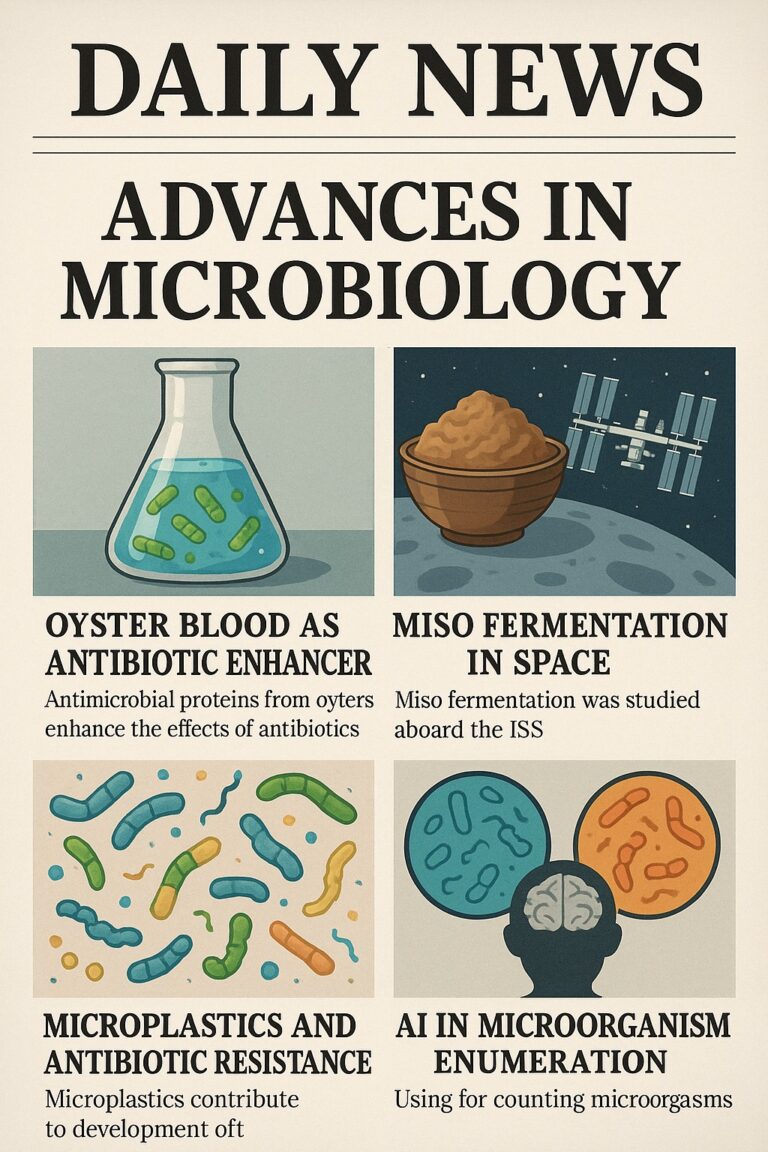
Oyster Blood as Antibiotic Enhancer: A study published in PLOS One reveals that antimicrobial proteins from Sydney rock oysters’ blood can enhance the effectiveness of traditional antibiotics by up to 32 times, particularly against respiratory pathogens like Pseudomonas aeruginosa and Klebsiella pneumoniae. These proteins are non-toxic to human cells and could lead to new antibiotic therapies delivered via inhalation, injection, or topically .
Miso Fermentation in Space: Researchers aboard the International Space Station fermented miso to study microbial activity in space. The space-fermented miso exhibited higher microbial activity and a distinct flavor profile, suggesting that microgravity and temperature variations affect fermentation processes .
🧬 Microbial Ecology and Health
Microplastics and Antibiotic Resistance: A study by Boston University found that E. coli bacteria exposed to microplastics developed resistance to multiple antibiotics. Microplastics provide surfaces for bacteria to form biofilms, which protect them from antibiotics. This finding raises concerns about the role of environmental pollutants in the spread of drug-resistant bacteria .
🧪 Imaging and Artificial Intelligence in Microbiology
Advancements in Bacterial Imaging: Recent developments in high-resolution optical microscopy have enhanced our ability to observe individual bacteria, offering insights into their metabolic states and behaviors at the single-cell level. These techniques are crucial for developing targeted treatments and improving clinical diagnostics .
AI in Microorganism Enumeration: A comparative study of vision transformers (ViTs) for weakly-supervised microorganism enumeration demonstrated that while traditional models like ResNets perform better overall, ViTs show competent results across various datasets, indicating their potential in microbial image analysis .